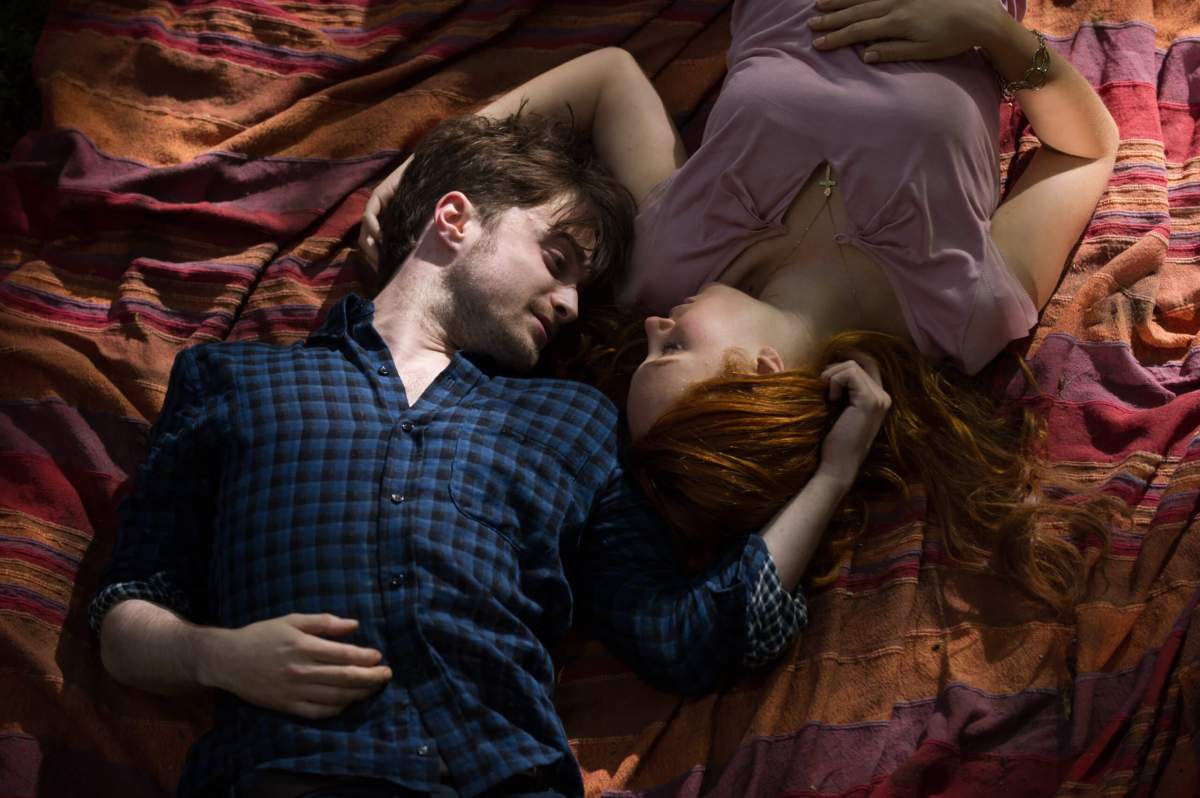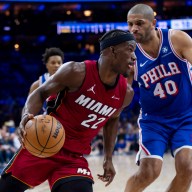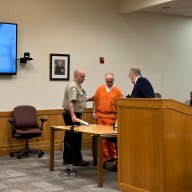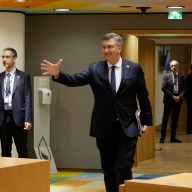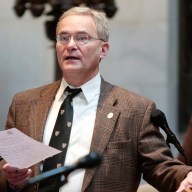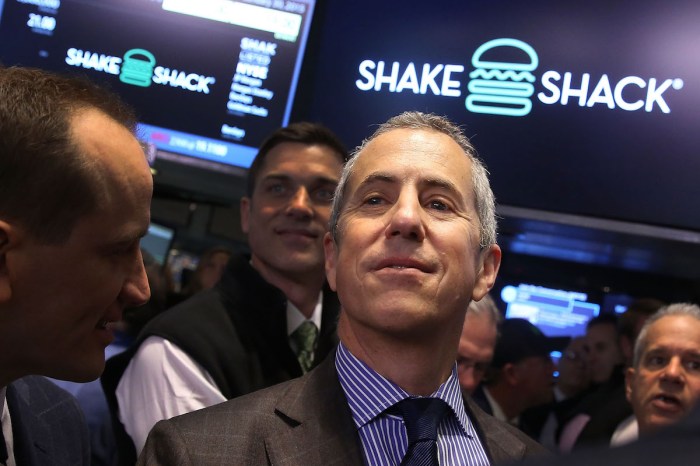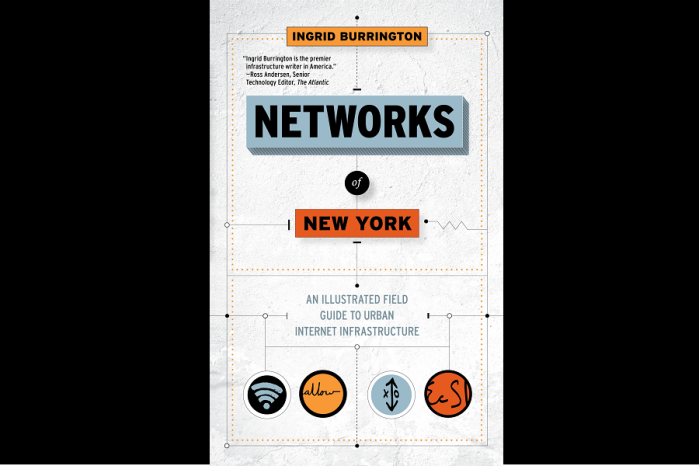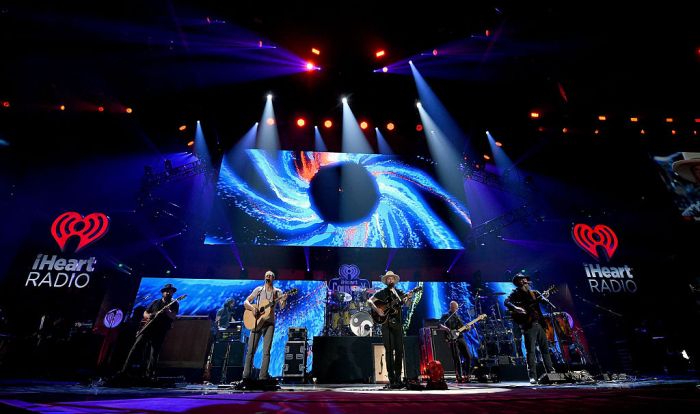“Horns” tells the story of a young man named Ig who wakes up one morning with a pair of horns growing out of his head. Lucky for him, the horns inspire the people around him to share their deepest confessions, which helps him as he tries to solve the murder of his girlfriend. And lucky for author Joe Hill, Daniel Radcliffe was up to the challenge of making that far-fetched concept feel real in the movie adaptation. What do you think of Daniel Radcliffe’s portrayal?
I think he’s amazing. I just think he’s great. … When I heard he was going to take on the part, I was excited, because I had seen “Woman in Black” and I felt he could really deliver. Even so, what he actually brought to the screen was wildly beyond my deepest hopes. I think that he is what is most exciting about the film, by far. The whole thing is anchored by his emotional commitment. What did you think was the most important part of the novel to capture?
I wanted to see the breakup. I wanted to see both the sweetness that comes with a young first love, the sort of joy and purity of that, and also the emotional wreckage that a person feels when it all comes apart. We have lots of pyrotechnics with an army of snakes, and fights with a pitchfork, and Ig growing these enormous terrifying horns out of head, but I think that the great special effect in the film is the breakup scene between Daniel Radcliffe and Juno Temple. What did you think of Juno Temple in the role?
She’s awesome. She’s really cool. The crazy thing is, everyone in the film is British. But we’ve already reached this point in film and television where we understand if you want someone to play an American well, you get someone from England. … We’re living through a kind of British invasion in the film business with this whole generation of amazing young British actors like Benedict Cumberbatch and Tom Hiddleston, and I think Dan is right there with the best of them. … The thing is, I don’t see why anyone should be surprised if Daniel Radcliffe turns out to be a great actor, or Emma Watson, or Rupert Grint , or any of the kids who were part of the Hogwarts graduating class. After all, they all spent their childhoods in the best acting school known to man. They grew up for over a decade working with actors like Alan Rickman and Michael Gambon and Kenneth Branagh and Emma Thompson, learning their craft and seeing how the best handle themselves. I can’t imagine a more powerful education in the arts. How did you feel about the horns once you saw them?
I got to wear them! I was on set for a few days and the special effects crew was trying their third stage horns and they needed someone to put them on, so they sat me down in the makeup chair and put them on. They’re very comfortable. They’re the kind of accessory that makes you look good with anything. You can have a casual t-shirt and jeans, but you can also dress up in a suit and look good with the horns on. Did your dad give you any advice about the adaptation process?
When I wrote the novel, I was in a pretty bad place emotionally. It was a hard book to write. I sometimes joke that the book is an unhappy, paranoid novel written by an unhappy paranoid man. … But eventually I did write “Horns,” and I remember sending the second draft to my dad, and he read it and he said, this is good, you’re going to be OK. And it was the first time I felt any peace of mind about the second book. And I was in a much better place by the time the film got made and I loved what I was seeing, but I wasn’t sure how well it worked and I sent a copy to my dad and he looked at it and he said, this is great, this is a lot of fun. And again, I kind of felt like, OK, we didn’t screw up. Well, and he’s a pretty good judge, right?
He is. When it comes to critical responses, some people are better known for their negative opinions than their positive opinions. I think my dad is a booster. My dad is someone who tends to get excited about things as opposed to rip things, but he always would rather talk about the things he loves, than the things he hates. That said, he’s a pretty straight shooter. So’s my mom. So they’re honest when they think something needs changes?
In most families, I think traditionally your parents always tell you you’re wonderful. … At least in terms of writing, my mom is an old hand at the novel and at poetry and at drama. She has written mountains. And my dad is an old hand at writing. And both of them are essentially English professors pretending to be pop culture figures. They are basically English professors at heart. And when we were kids, the family discussion was always literary discussion. Always bookstores, and writers, and publishers, and writing, and characters, and sentences. We would read each other sentences we loved. And so when they read stuff that I do, they’ve got their blue pencil in hand and their editor glasses on. There can be warm, even effusive encouragement, but it also tends to be like, if you’re a doctor and your parents are also doctors, they’re giving you a clinical opinion. They’re not going to tell you a patient looks great if he’s clearly not going to recover. So on that level, I feel like they’ve always shot me straight. They’ve certainly told me when they thought things needed radical changes.
Joe Hill thinks Daniel Radcliffe is the best part of ‘Horns’
